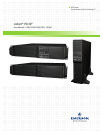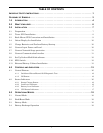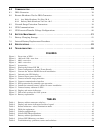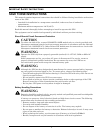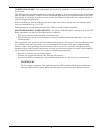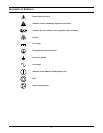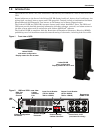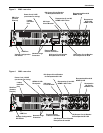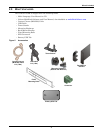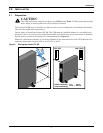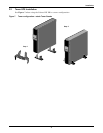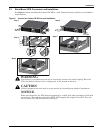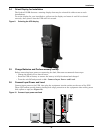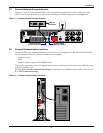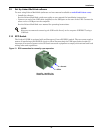
1
IMPORTANT SAFETY INSTRUCTIONS
SAVE THESE INSTRUCTIONS
This manual contains important instructions that should be followed during installation and mainte-
nance of the UPS.
• Intended for installation in a temperature-controlled, indoor area free of conductive
contaminants.
• Maximum ambient temperature 104°F (40°C).
Read this manual thoroughly before attempting to install or operate this UPS.
The equipment can be installed and operated by individuals without previous training.
Size of Branch Circuit Overcurrent Protection
Battery Handling Precautions
!
CAUTION
To reduce the risk of fire, connect PS3000RT3-120XR models only to a circuit provided with
30 amperes maximum branch circuit overcurrent protection in accordance with the National
Electric Code, ANSI/NFPA 70. Other Liebert PSI models must be connected to a circuit with
20 amperes maximum branch circuit overcurrent protection.
!
WARNING
Operate the UPS only from a properly grounded (earthed) 110-127VAC, 50Hz or 60Hz AC
supply.
Some components are live, even when AC power is disconnected. For service, contact a
properly trained and qualified technician. Do not remove the cover; the UPS has no
user-serviceable parts inside except the internal battery pack.
!
WARNING
Although the UPS has been designed and manufactured to ensure personal safety, improper
use can result in electrical shock or fire. To ensure safety, observe the following rules:
• Turn Off and unplug the UPS before cleaning it. Clean the UPS with a dry cloth. Do not use
liquid or aerosol cleaners.
• Do not install or operate the UPS in or near water.
• Never block or insert any objects into the ventilation holes or other openings of the UPS.
Keep all vents free of dust accumulation that could restrict air flow.
• Do not place UPS power cord anywhere it might be damaged.
!
WARNING
Batteries should be replaced only by properly trained and qualified personnel knowledgeable
of batteries and required precautions.
A battery can present a risk of electrical shock and high short-circuit current. The following
precautions must be observed when working on batteries:
• Remove watches, rings and other metal objects.
• Use tools with insulated handles.
• Do not dispose of the battery or batteries in a fire. The battery may explode.
• Do not open or mutilate the battery or batteries. Released electrolyte is toxic. It may cause
injury to the skin and eyes.
• When replacing the battery, use the same type of battery as is listed in Table 5.
• Handle, transport and recycle batteries in accordance with local regulations.



